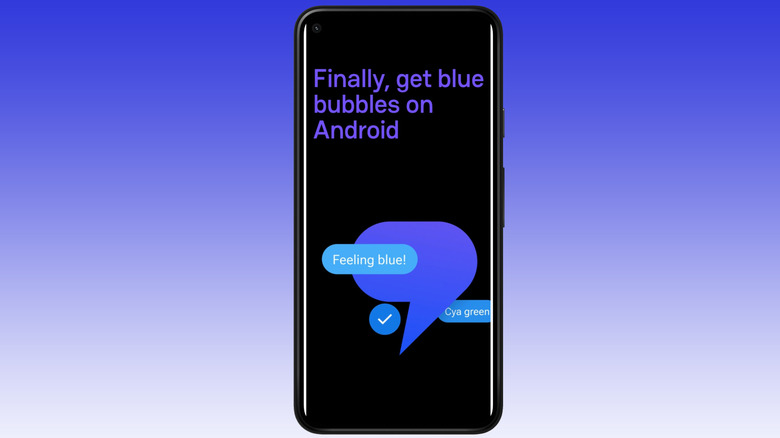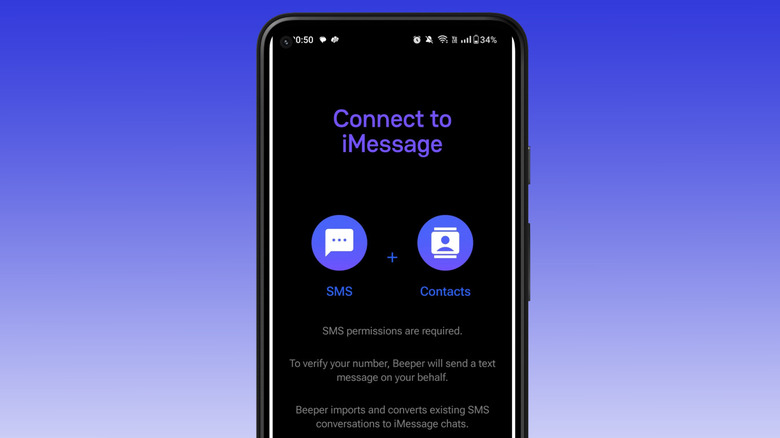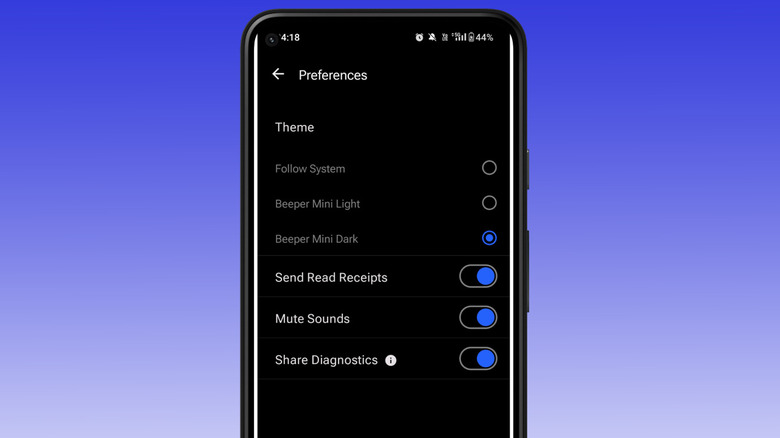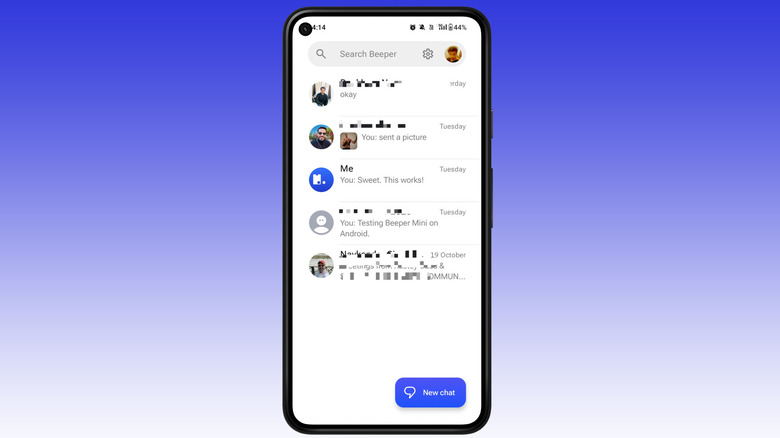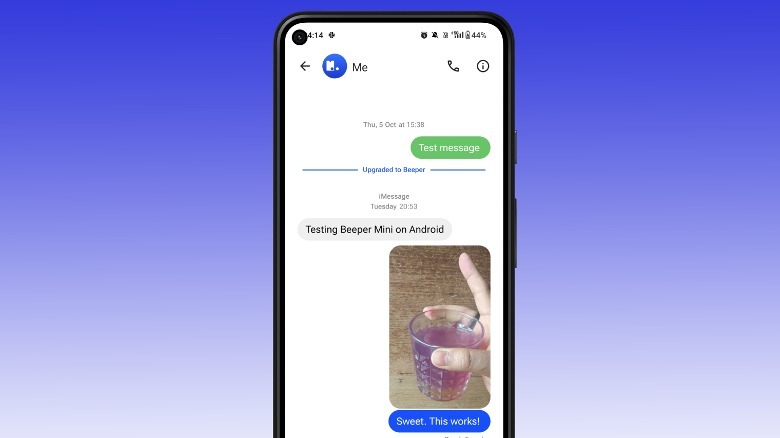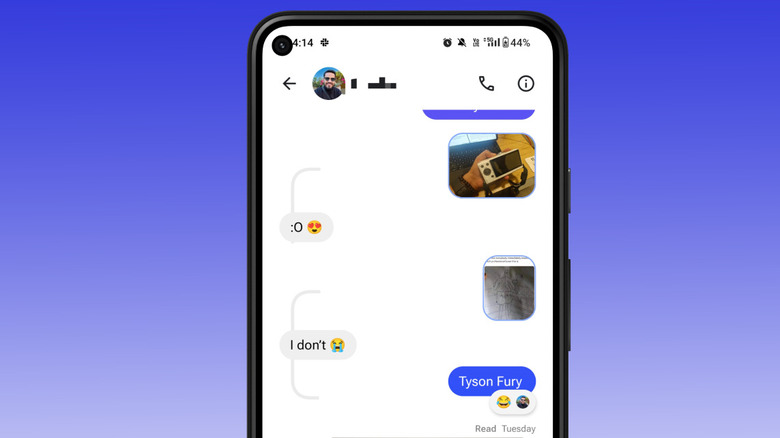iMessage Comes To Android: Everything You Need To Know About Beeper Mini
A few weeks ago, an app called Nothing Chats arrived on the scene with a whole lot of buzz around it. The key selling point was iMessage on Android, and that, too, with blue bubbles. No more green bubble shaming. Nothing CEO Carl Pei appeared in an introductory video with a brave "Sorry Tim" caption and talked about breaking ecosystem walls. Within days, it all came crashing down. Nothing Chats was based on Sunbird's architecture, which used a hack (a system of Mac relays) to allow iMessage on Android but had a dumpster fire for security measures. Nothing pulled its app, and Sunbird's own eponymous app was shut down to address the flaws.
Beeper, the brainchild of Pebble Co-Founder Eric Migicovsky, has now introduced an app called Beeper Mini. The app, which lives behind a $2 monthly subscription, pulls the same stunt as Nothing Chats and Sunbird. But Beeper Mini offers almost all the core features you would expect from an iPhone-to-iPhone text exchange. Most notably, it doesn't rely on a shady hack. In fact, it doesn't even need your Apple ID to allow iMessage on Android phones. It's a product of reverse engineering the iMessage foundations. Setting it up is a breeze, and it doesn't make any safety compromises either, or so claims the company. By default, all your iMessage conversations are end-to-end encrypted, and all you need to give is your mobile number and a few on-device permissions to get going.
How it materialized?
Beeper Mini's beginnings are rather extraordinary. Now, Beeper arrived on the scene earlier this year, offering a way to cluster all your messaging apps — such as WhatsApp, iMessage, Slack, and Telegram — in one place. The 15-chats-1-app formula was pretty darn lucrative in itself. Then, in August, a high-schooler going by the alias JJTech arrived on GitHub claiming to have reverse-engineered iMessage. They subsequently reached out to Migicovsky with their pitch for a Mac-free, open-source implementation of iMessage called pypush. As unbelievable as it seemed, Migicovsky was sold on the idea, and JJTech promptly handed over the reins to the folks over at Beeper while still being a part of the project.
So began the journey of Beeper Mini. As mentioned above, Beeper Mini doesn't rely on a system of Mac relays to trick Apple servers into believing that a message is originating from an Apple device. Instead, it relies on the very foundations of an Apple system that dictates push notifications. The company calls it Apple Push Notification Service (APNs). It is bidirectional and handles the delivery chain for iMessage. After latching on to the APN link, pypush proceeds with the registration process, where Apple requires validation data, which essentially asks for proof that an iMessage token request originated on an Apple device.
Pypush relies on a similar device serial identifier format as tools like Hackintosh, which means the identifiers are legitimate and validation is without any shady loopholes. Notably, Beeper Mini also keeps end-to-end encryption intact, a safe way to assure users that they don't have to worry about security when texting from an Android phone over the iMessage line to reach an iPhone user—a detailed breakdown of how all that transpires can be found here.
How Beeper Mini works?
Beeper Mini is available as a standalone app on the Play Store with a subscription fee of $2 per month and a seven-day free trial. Once you install the app, you need to authenticate your Google Play payment method for paying the subscription fee, register your number, and you're good to go. Unlike Nothing Chats or Sunbird, Beeper Mini doesn't ask for your Apple ID credentials to do its job.
After granting it the message and contacts access permission, the app will export your Android-to-iPhone chats. Starting a new chat is as easy as the native iMessage experience on iPhones or third-party apps like WhatsApp. For an app that crosses the notoriously complex ecosystem wall between Android and iOS, Beeper Mini offers a seamless process of getting started with iMessage on Android phones.
We worked hard to make this extremely secure. No Apple ID is required to use Beeper Mini. It registers only using your phone number. We wrote a detailed post about how it works: https://t.co/pL3jZ2NTJ1
— Eric Migicovsky (@ericmigi) December 5, 2023
However, if you want the convenience of using Beeper Mini on other devices, such as an iPad or Mac, you need to submit your Apple ID credentials. Just to be clear here, it's an optional facility. Once you proceed with it, you can use your Apple ID-linked email address to message the people in your contacts list from devices other than your Android phone on which the app is installed.
Beeper only collects your name, phone number, IP address, model number of the phone, Android version, and your Google / Apple email address. Beeper also assures that it doesn't store your Apple ID details. All the conversation contents — text and media — are stored in an encrypted form using zero-access encryption on Beeper servers. Interestingly, Beeper offers a self-hosting option and an open-source Python proof-of-concept (POC) on GitHub.
How's the experience?
Just like the setup process, using Beeper Mini is a surprisingly rewarding experience. I tested the app by texting at least three iMessage-on-iPhone users, and they couldn't point out any irregularity. On my own end, I didn't notice any issues with sending text messages or media files from a OnePlus Open to an iPhone 15 Pro Max side by side. Features such as emoji reactions, read receipts, and thread replies also worked flawlessly. Following is the complete list of iMessage features that are currently available in Beeper Mini:
- Direct Messages
- Edit and unsend messages
- Group chats
- High-resolution image and video sharing
- Read receipts
- Reply threads
- Stickers and GIFs
- Tapback emoji reactions
- Typing status
- Voice messages
At the moment, the app lacks support for FaceTime audio and video calls. Moreover, you can't share your live location and use message effects. Additionally, iMessage games such as Tic Tac Toe and Game Pigeon are absent. Beeper says these mini-games won't likely make it to the app in the near future. Overall, Beeper delivers on its core promise without any security red flags, which puts it way ahead of rival solutions.
But the question is, should you pay $2 per month just to turn your chat bubbles blue and get most of the iMessage features on an Android phone when apps like WhatsApp exist? If you live in the U.S., a place where the chat bubble color could have a tangible impact on your social life, the answer is yes. But for any other market where WhatsApp, Telegram, and WeChat handle the bulk of daily peer-to-peer conversation for the masses, Beeper Mini won't find many takers.
What lies ahead?
The biggest argument against Beeper Mini is that Apple is adopting the RCS protocol next year, which means it will natively modernize the Android-to-iPhone messaging experience with most of the snazzy features you would expect from iMessage. But there are two caveats here. When the shift begins later next year, end-to-end encryption won't be available out of the box. And given the complexity of implementing an encryption firewall, it could take its own sweet time. Additionally, there is no assurance whether Apple will extend its FaceTime calling facility to Androids when it embraces the RCS foundation tech in 2024.
Beeper Mini already offers an end-to-end encryption facility. It plans to enable FaceTime audio and video calling in the coming months. Moreover, additional features such as block lists, text search, importing past chat history, backup and export, message scheduling, and foldable screen optimization are already on the roadmap. We don't have a strict timeline for when exactly it is going to happen, but development is underway on a priority basis. Support for iOS and desktop platforms is also on the planning course.
But that's just the feature part. Down the road, Beeper Mini will become what the original Beeper app (now Beeper Cloud) set out to accomplish. It will become an umbrella app that will serve as a one-stop-shop for 15 messaging platforms, including WhatsApp, Instagram DMs, Telegram, and iMessage, among others. The Beeper Cloud app will be phased out at that point, and Beeper Mini will move forward as the company's sole offering.
